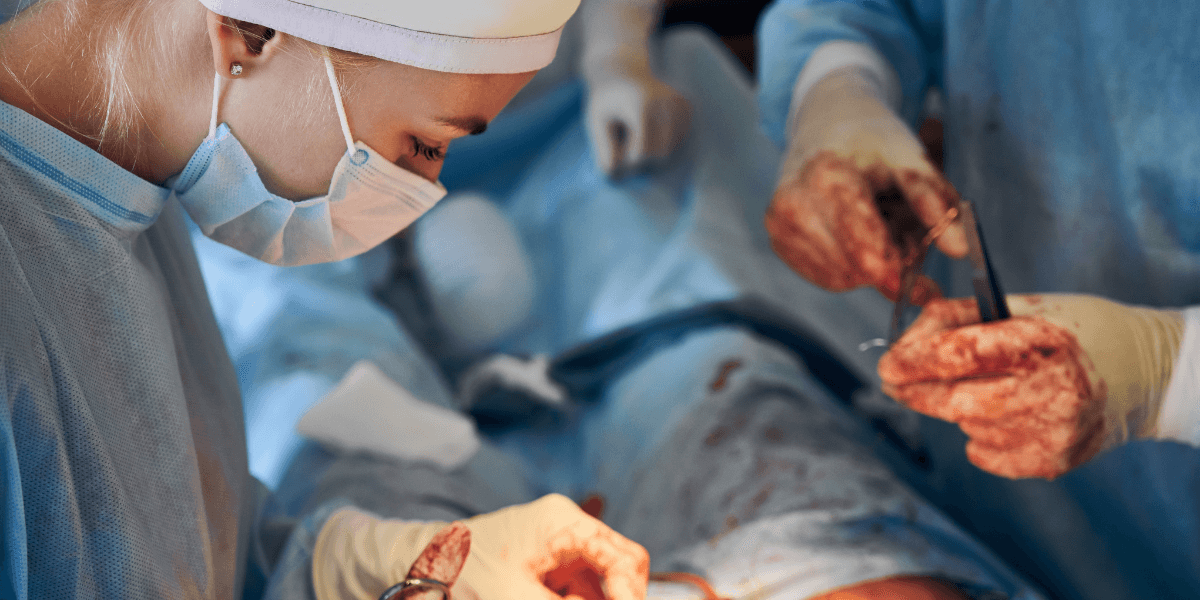


Hernia occurs when an organ protrudes through a weakened area in the nearby muscle or tissue holding it in place. Depending on their location, hernias are classified into inguinal hernia (affects inner groin), hiatal hernia (upper stomach), incisional hernia (occurs post-surgery in inactive patients), umbilical hernia (belly button), and femoral hernia (outer groin). From chronic cough to heavy lifting, smoking, and obesity, various factors can contribute to its development.
The National Center for Health Statistics reveals that more than 5 million individuals in the US have hernias. Nevertheless, only 15% of them seek medical intervention. Remember, hernias can escalate in severity over time. When a hernia is trapped in the opening, it has protruded through and cannot retract, which can cause discomfort.
Sometimes, the affected tissue may not get enough blood supply, leading to necrosis (tissue death). This is why surgical intervention is needed to ease your symptoms and reduce the risk of complications.
Let us discuss hernia surgery, explaining its types, benefits, risks, etc., to help you make an informed decision.
Hernia surgery involves pushing the protruded organ and herniated tissue back into place, strengthening this replacement with stitches or meshes.
See Also: Understand the Causes, Symptoms, and Treatment of Adrenal Cancer
Open Hernia Surgery: It involves making an incision to open and operate on the herniated tissue to position the organs and tissue back into place. It uses surgical mesh to stitch the tissue together and strengthen it.
Laparoscopic Hernia Surgery: It involves making three to four small incisions. Your doctor will insert a thin tube featuring a tiny video camera (laparoscope) through one incision that displays the images of your herniated organ. After that, they will insert surgical instruments through other incisions to repair the hernia.
Robotic Hernia Surgery: It uses robotic surgical instruments to push back the herniated tissue. Your doctor will work at a console, guiding the technology used to repair the hernia.
Hernia surgery can be performed to treat the following conditions:
Your provider will begin with a physical examination and may recommend some tests to ensure your health and suitability for anesthesia surgery. Then, they will provide you with some instructions to get yourself ready for the surgery, which may include:
Your surgery is performed either laparoscopically or conventionally. For open surgery, you will be given regional or local anesthesia; general anesthesia is enough for laparoscopic surgery. Once your surgical site is anesthetized, your surgeon will make one or 3 to 4 incisions, depending on the type of surgery, and position the herniated tissue into its place and repair the weakened nearby tissue. They may use sutures or surgical mesh to reinforce the placement, preventing hernias from recurring. Then, your incision(s) will be closed, and wounds will be dressed.
Hernia surgery is outpatient so you can return home the same day. However, you may still be asked to stay if your hernia is large or you have existing medical conditions. You may experience soreness and pain for 3 days following the surgery, whether it is laparoscopic or traditional. However, the severity of your pain may be less for laparoscopic surgeries. You can effectively manage it with over-the-counter drugs, provided your hernia is in the groin or small.
Before you go back home, you will be explained about post-operative care concerning how to take care of yourself and your incision after the surgery. If your hernia is large, a small drainage tube may be needed for a short period post-surgery.
See Also: Melanoma Treatment: Everything You Should Know
The significance of hernia surgery should not be underestimated despite its painful recovery and potential complications associated with it. Hernia surgery is crucial, as it not only eases your symptoms but also reduces the complications that may develop if the condition is untreated and minimizes the risk of recurrent hernias. Moreover, advancements in medical technology have improved the success rates of hernia surgeries, maximizing the chances of a full recovery. Therefore, it is imperative to consider undergoing surgery to ensure a healthy future.
At Far North Surgery in Anchorage, AK, we specialize in offering high-quality care and comprehensive treatment options for hernia patients. Our cutting-edge techniques and state-of-the-art facilities enable us to perform your hernia surgery with utmost precision and professionalism, producing the desired outcomes.
Our surgeon, Dr. Madhu Prasad, has earned a stellar reputation for successfully treating hernias with less to no complications. He won the award for providing exceptional care and achieving optimal patient outcomes. His proficiency in the latest surgical techniques ensures that you will receive the highest level of care every time you visit our clinic.